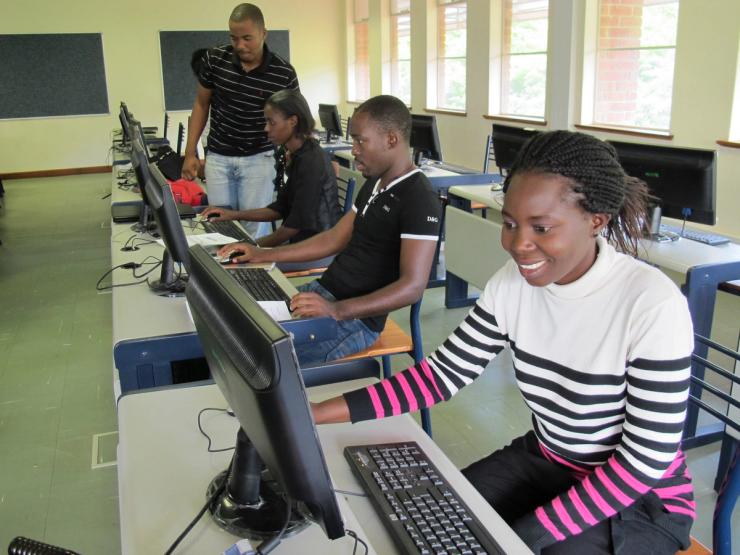The News
LAGOS — Nigerian officials are banking on a new investment fund for artificial intelligence backed by Google to accelerate interest in deploying the technology.
The hope is that AI will help to solve the country’s development challenges.
The fund was rolled out at a conference co-organised by the US State Department this week, after officials from both countries met in April, to target early-stage entrepreneurs whose services involve AI.
Ten startups will each receive 10 million naira, or about $6,000 equity-free. It is “a critical step in taking advantage of future technologies to develop homegrown innovation that addresses local challenges,” Nigeria’s digital economy minister Bosun Tijani, whose office will supervise the fund, said.
Tijani has made AI advancement the centerpiece of his agenda since being tapped for the role last year, based on his reputation as a key architect of Nigeria’s tech ecosystem that has produced four of Africa’s seven billion-dollar startups.
He recently published a draft of the country’s national AI strategy, a document produced after a year of collaboration between AI researchers of Nigerian descent. A program to train three million tech specialists is another pillar of his plan.
In this article:
Know More
These early moves for AI will prepare Nigeria to be integrated in an inevitable global transition affecting every sector, analysts say.
“We can’t fold our arms and wait to have everything necessary before we start,” said Segun Adekunle, executive secretary of the Nigeria Computer Society, an independent professional body. “We don’t want to be left behind, so the earlier the better.”
The buzz in Nigeria reflects a “very high level” increase in AI interest across Africa, said Chinasa T. Okolo, a Brookings Institution fellow who worked on Nigeria’s AI strategy and one for the African Union. “There’s a very big interest from outside funders, so more African governments are starting the process of developing national strategies which will hopefully evolve to regulation in a couple of years,” Okolo told Semafor Africa.
Most African countries are ranked in the lower bands of the International Monetary Fund’s AI Preparedness Index. While the US, Canada, China and most of Europe score above 65%, Nigeria’s score is 34% — also the sub-Saharan African average.
South Africa is the only African country with a score of up to 50%.
Alexander’s view
Optimism about what AI can bring to Nigeria stems from recent history. From the liberalization of the telecoms market in the early 2000s to the spread of broadband internet to 44% of the current population, digital technology has boosted productivity and opportunity in the economy and increased Nigeria’s participation in the global labor market.
To raise AI into the public consciousness and seed future leaps in economic development, Nigerian policymakers should begin creating “small pockets of functional use,” says Oswald Guobadia, a former technology aide to Nigeria’s immediate past president. A strategic approach would be to evaluate AI’s application in recurring processes involving a large number of people, like getting national identity documents or decongesting markets, he said.
Some Nigerian startups are at the early stage of advancing AI adoption. Clafiya, a three-year-old health startup offering remote consultations with physicians and a savings account through an app, is working to test an AI-enabled WhatsApp chatbot for users next month. It wants to be able to offer predictive analytics on diseases in the near future.
But these ambitions depend on a massive increase in data and information availability in Nigeria, Clafiya’s co-founder and CEO Jennie Nwokoye told me. “We have to build that infrastructure, otherwise it seems we will be doing very surface-level AI,” she said. For Okolo, the Brookings fellow, the strongest signal of greater AI adoption in Africa would be increased government investments in digital and telecoms facilities.
Room for Disagreement
Nigeria’s high poverty and illiteracy rates, as well as perennial electricity supply shortages, are more pressing concerns requiring government attention and resources, critics of the government’s AI agenda often say.
“We have places in this country where there are no seats in classrooms and we are talking about AI,” Daniel Egunjobi, an entrepreneur developing online video lessons for national exams, told me. “If I am uneducated and cannot use an Android phone, how can I type on ChatGPT?”
The Google-backed AI fund has also been roundly panned for being too little to make a difference given the cost of AI-related equipment. The latest graphics processing chip by the American AI giant Nvidia costs between $30,000 and $40,000 per unit.
Notable
- The Nigerian government has backed a project led by a Lagos-based startup developing a large language model to increase the representation of local languages in global AI systems.


